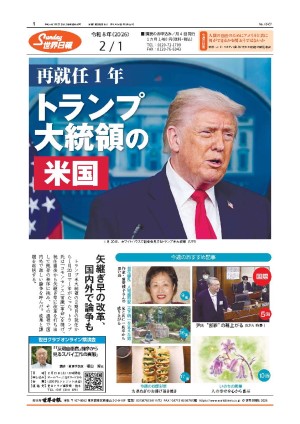マンチン上院議員が政党のくら替えをすべき理由 Why Sen. Joe Manchin should switch parties
仮に、ウェストバージニア州のジョー・マンチン上院議員が、彼が主張するように、仲間の民主党員の極左のアジェンダに反対しているならば、彼が所属政党のくら替えをして、共和党員になる方法以外により良いやり方はないであろう。
民主党員の過激なアジェンダには、米国の最高裁判所をリベラル派の判事で満杯にしたり、選挙人団や、上院の議事妨害戦術を廃止したり、また、コロンビア特別区(通称ワシントンD.C.)に州の資格を与えたりするやり方が含まれているはずだ。
マンチン氏は11月10日、CNNで高等裁判所を彼の所属党派で満杯にすることについて「私はそれには賛成票を入れない」と言い、さらに続けて「私は基本的には議事妨害戦術をやめさせることに賛成票を入れるつもりはない。なぜなら、そうすることは、私たちは上院を見限ったことになるからだ。それは、二つの対立する党があってこそ、機能するものとされているのだ」と言った。
有権者が、2008年に政権を付託する相手を読み間違え、2010年の中間選挙の頃、オバマケア(医療保険制度改革法の俗称)が制定されたことに、大きな拒絶の声を上げ続けていたことから、民主党員は、何にも学ばなかったようだ。実際、その選挙で、彼らは下院の63議席と上院の6議席を失ったのである。
1月5日にジョージア州で、民主党が、上院の2議席を獲得して、上院は今や50対50の対立でやっていけるようになる。カマラ・ハリス次期副大統領が同点決着者の役割を務めることになるので、ニューヨーク州選出のチャック・シューマー上院院内総務が、11月7日に言った「アメリカを変える」と言った公約を真に受けないという理由はなくなる。
マンチン氏は、所属政党のくら替えをすることによって、何もかも、前もって阻止することができて、民主党員らの過激なアジェンダを強引に押し通すチャンスを彼らに与えないで済むのだ。
マンチン氏が共和党員になると都合のいい理由はほかに二つある。
1)ウェストバージニア州民は、ジョー・バイデンより68.6%多くトランプ大統領に投票し、山岳州(ウェストバージニア州のニックネーム)を共和党の一番強い州とはいかないまでも、間違いなく5強の一つにする。
2)マンチン氏自身の選挙区でも、そのようなことがつい最近起きたことが分かっている。2016年に民主党員として選ばれたウェストバージニア州のジム・ジャスティス知事も、就任して、ちょうど7カ月後に、政党を乗り換えたのだ。そして、彼は11月に地滑り的な再選を果たした。
ケンタッキー州の共和党員で、上院院内総務のミッチ・マコネル氏などは、委員会の委員長の仕事とか、あるいは、二つの幹部の仕事を、マンチン氏のくら替えを後押しするためのさらなる刺激策として投げ出しかねないでいる。
マンチン氏は、上院の50対50という分裂状態の中では、党の規則に従い、民主党の極左のアジェンダを支持しようとすれば、強烈な圧力を受けるようになるであろう。
ウェストバージニア州の議員が、民主党員のままでいながら、自身の現在の党の極左のアジェンダに反対の票を入れることは、しようとすればできる。しかし、そんなことをすれば、上院民主党の党員大会の集まりなどで、彼の評判は、ことわざに出てくるガーデンパーティーのスカンク並みに地に落ちるであろう。
要するに、マンチン氏にとっては、彼の党と闘うよりも党を乗り換えた方が、簡単なのである。彼は、ロナルド・レーガンが言った言葉を引き合いに出したらよい。(第40代大統領)ロナルド・レーガンは1962年に、自身の所属政党を変えた時の経緯を説明しているからだ。「私が民主党を去ったのではない。党が私から離れたのである」と。
(1月14日付)
If, as he insists, Sen. Joe Manchin of West Virginia opposes his fellow Democrats’ far-left agenda, there would be no more effective way of doing that than for him to switch parties and become a Republican.
The Democrats’ radical agenda could include packing the U.S. Supreme Court with liberal justices, abolishing the Electoral College and the Senate filibuster, and granting statehood to the District of Columbia.
Mr. Manchin said on CNN on Nov. 10 of packing the high court: “I’m not voting for that.” He added: “I’m not voting for basically breaking the filibuster because that means that we’ve given up on the Senate. It’s supposed to work in a bipartisan way. I would never do that.”
Democrats apparently learned nothing from the resounding repudiation voters handed to them for misreading their 2008 mandate and enacting Obamacare in the 2010 midterms, in which they lost 63 House seats and six in the Senate.
With Democrats having captured both of the Georgia seats in the Senate on Jan. 5, the Senate now will be split 50-50. With Vice President-elect Kamala Harris poised to be the tiebreaker, there’s no reason not to take Sen. Chuck Schumer, New York Democrat, at his word on his Nov. 7 vow to “change America.”
Mr. Manchin can pre-empt all of that by switching parties, denying Democrats the opportunity to steamroll their radical agenda through.
There are two other good reasons for Mr. Manchin to become a Republican:
1.) West Virginians gave 68.6% of their votes to President Trump over Joe Biden, which makes the Mountain State if not the reddest of states, certainly in the Top 5.
2.) There’s recent precedent for it in Mr. Manchin’s own backyard: West Virginia Gov. Jim Justice, who was elected as a Democrat in 2016, switched parties just seven months later. He won re-election in a landslide in November.
Senate Majority Leader Mitch McConnell, Kentucky Republican, could throw in a plum committee chairmanship or two as an added incentive for Mr. Manchin to switch sides.
In a Senate split 50-50, he will come under intense pressure to toe the party line and support the Democrats’ far-left agenda.
While the West Virginia lawmaker could vote against his current party’s far-left agenda while remaining a Democrat, doing so would make him about as popular as the proverbial skunk at a garden party at meetings of the Senate Democratic caucus.
In short, it would be easier for Mr. Manchin to switch than to fight his party. He could cite Ronald Reagan, who explained his 1962 switch of party affiliation: “I didn’t leave the Democratic Party. The party left me.”
January 14, 2021





